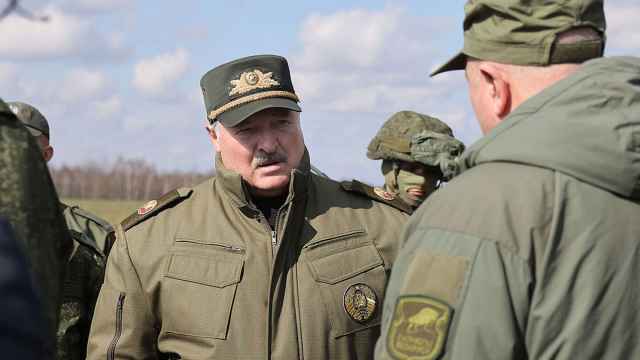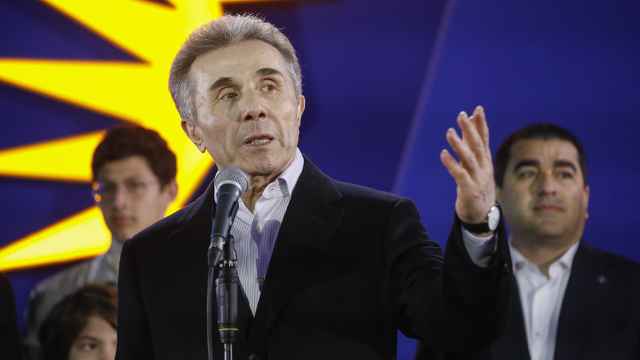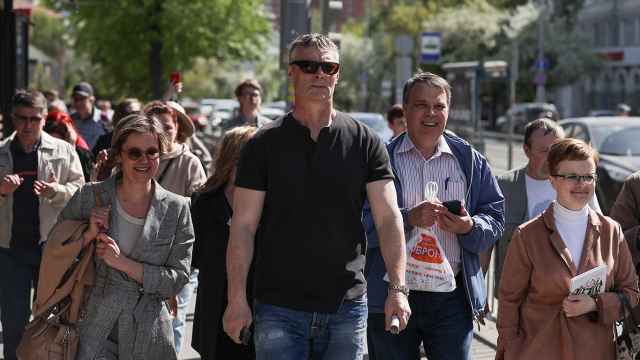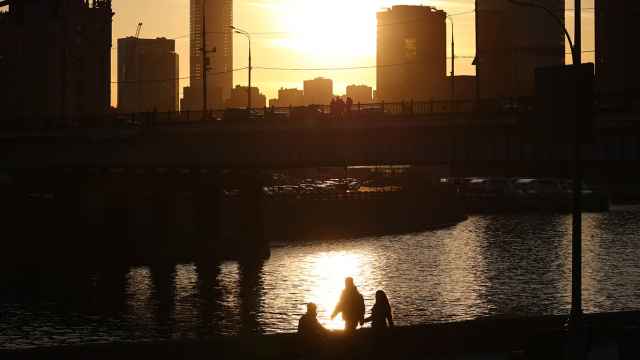The European Union insists that Russia agree to its terms for a visa facilitation agreement before any progress can be made toward a visa-free travel regime.
This is the message from Friday's EU-Russia summit.
The talks between President Vladimir Putin and EU Commission President Jose Manuel Barroso and EU Council chief Hermann van Rompuy in Brussels were dominated by visa and energy issues — none of which saw any significant breakthrough.
Barroso said at a joint news conference with Putin after the talks that in order to achieve "positive dynamics" for a visa waiver, it was important to reach a more modest agreement that would make travel easier for a range of professional groups, according to a transcript n the Kremlin's website.
Talks about a visa facilitation agreement have been dormant for more than a year because Moscow demands visa-free entry for government officials, something the Europeans categorically refuse.
Putin did not respond to the trade-off at Friday's news conference, and he reiterated his position that scrapping visas would remove a significant hurdle to investment. He said that "all technical questions were solved" and that all that was needed for a visa waiver now was a political decision by the European Union.
Despite Putin's claim, the "common steps" program to achieve the technical conditions for abolishing visas is ongoing between the EU and Russia — and nowhere close to completion.
According to EU diplomats, both sides just finished two of four areas covered by the program.
The common steps do not lead automatically to visa-free travel, but their completion is a precondition for negotiations about this to start. European officials are adamant that there is no time frame for this, whereas Russian officials have said they want to see visas scrapped before the Sochi Olympics in February 2014.
Putin argued that Russian tourists were important for the crisis-hit European economy because they spend more than 18 billion euros ($23.7 billion) in shops in EU countries each year.
"The lack of a visa-free regime constrains the future development of economic ties," he said.
Barroso countered that EU countries gave 5.26 million visas to Russians in 2011 and that visitor numbers were up 62 percent. "This … means the system works relatively smoothly," he said.
Putin also renewed his criticism of the EU's third energy package, a set of regulations that forces suppliers to unbundle their assets in member countries — and mainly hits energy giant Gazprom.
Speaking at the beginning of Friday's talks, he called the law "uncivilized" and said it destroyed mutual trust. He reiterated his argument that the package violated previous agreements with the EU because it took retroactive effect.
"We see the actions taken by some of our partners in some countries as a confiscation of Russian investment," he said at the news conference.
Barroso replied that the rules apply equally for all companies, regardless of where they are from. "Your companies are most welcome in the EU market. But they have to respect fully our rules," he told Putin, adding that "we have the rule of law, and today part of this law is the third energy package."
However, Putin retorted that Barroso was wrong: "My good old friend Mr. Barroso outlined his position in such great detail, so emotionally, because he knows he is wrong. … Please look at our agreement, Article 34. Read it," he said with reference to a partnership and cooperation agreement between Russia and the EU, which has been functioning since the 1990s and which the EU is keen to replace.
EU restrictions have prevented Gazprom from substantially increasing gas supplies via its Nord Stream pipeline through the Baltic Sea. Moscow is also seeking an exemption from EU regulations for the planned South Stream pipeline, designed to start carrying gas under the Black Sea in 2015.
Meanwhile, activists from the radical Ukrainian movement Femen drew attention to Putin's human rights record by staging a trademark topless protest outside the summit venue.
Photos on Femen's website showed omen with "Deal with the Devil," "Apocalypse of Democracy" and "Putin, Go Home" written on their bodies being escorted away by police officers.
The movement said the protest's purpose was to drive the "apocalyptic dwarf Putin" from the EU capital and warn the EU that close contact with "Kremlin freaks" was disastrous for democracy.
Friday had been dubbed the end of the world by media and bloggers worldwide because the date marked the end of the ancient Mayan calendar.
Related articles:
A Message from The Moscow Times:
Dear readers,
We are facing unprecedented challenges. Russia's Prosecutor General's Office has designated The Moscow Times as an "undesirable" organization, criminalizing our work and putting our staff at risk of prosecution. This follows our earlier unjust labeling as a "foreign agent."
These actions are direct attempts to silence independent journalism in Russia. The authorities claim our work "discredits the decisions of the Russian leadership." We see things differently: we strive to provide accurate, unbiased reporting on Russia.
We, the journalists of The Moscow Times, refuse to be silenced. But to continue our work, we need your help.
Your support, no matter how small, makes a world of difference. If you can, please support us monthly starting from just $2. It's quick to set up, and every contribution makes a significant impact.
By supporting The Moscow Times, you're defending open, independent journalism in the face of repression. Thank you for standing with us.
Remind me later.






